What is the origin of the name "China"?
“中国”这个名字从何而来?
以下是Quora网友的评论:
George Hu
Related
Where did the name "China" come from?
The following is only my personal opinion.
China was named after the Qin Dynasty, but in a very roundabout way and possibly questionable.
“中国”这个名字是怎么来的?
以下只是我个人的看法。
中国是因为秦朝而得名的,但过程有些曲折,也许存在疑点。
The Qin only ruled the unified China for a short period of time. 15 years to be exact (221 - 206 BCE). While it had left significant influences on China after its reign, not many people genuinely like the Qin. The successor dynasty of Qin was the Han Dynasty, and due to their history, few people would self-identify as “Qin people.”
秦朝统一中国后只维持了很短一段时间的统治,准确地说只有15年(公元前221年至206年)。虽然秦朝的统治对中国产生了重大影响,但真正喜欢秦朝的人并不多。汉代取代了秦代,由于历史原因,很少有人会自认为是“秦人”。
The Han Dynasty referred to the Roman Empire in the West as “Da-Qin.” This name was not a phonetic translation, it was only because it was a “a great nation in the West,” and Qin was a metaphor for being in the West. If the people identified themselves as people of Qin, it would be most unusual for them to call the Romans “the people of the Great Qin.” 「其人民皆长大平正,有类中国,故谓之大秦。」
汉朝把西方的罗马帝国称为“大秦”。这个名字不是语音翻译,而是因为罗马帝国是一个“西方的大国”,而秦指代的正是西方。如果有人自认为秦人,那么他们称罗马人为“大秦国的人”就不伦不类了。“其人民皆长大平正,有类中国,故谓之大秦”
However, the name “Qin” somehow made it to another foreign state. I would believe the most agreeable usage of the word came from Hindu Sanskrit texts. The Mahabharata apparently referred to “Cina,” but given it was an epic poem that was possibly written before the Qin unification, it was possible that it was referred to Qin in the Warring States. Later, a corruption of the word became “Zhina,” and the negative history became associated with the word due to its use by Japan as a derogatory term.
但“秦”这个名字传到了另一个国家。我相信多数人相信这个词的使用出自印度梵文手稿。《摩诃婆罗多》提到了“中国”,但因为这是一首史诗,可能成文于秦国统一之前,所以有可能是指战国时期的秦国。后来这个词变体成了“Zhina”,又因为日本将这个词贬义化,这个词就跟那段不堪的历史联系在一起了。
There are various evidence for this in Buddhist texts in Sanskrit, such as the writings of Buddhist master Kumarajiva 鸠摩罗什 (344 -413). He was a translator of equal to, and have often been compare to, Xuanzang (Tang Sanzang), several hundred years after him. The famous idiom「空即是色」 came from his translation.
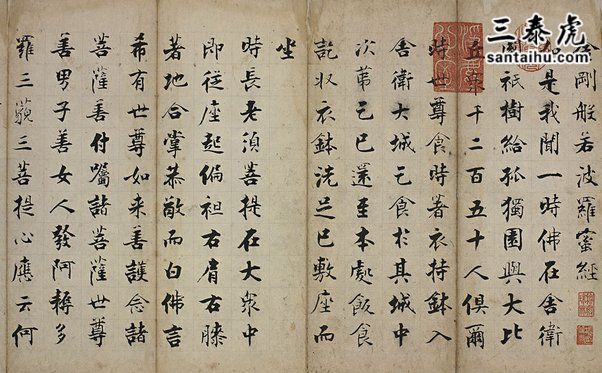
梵文的佛教文献中有许多证据,如佛教大师鸠摩罗什(344 -413)的著作。他是一个翻译家,人们常将其与晚几百年出生的玄奘(唐三藏)做比较。有个很有名的成语“空即是色”就是出自他的翻译。
(The Diamond Sutra 金剛經 was translated by Kumarajiva, and still the most popular version today.)
(金刚经由鸠摩罗什翻译,至今仍是传播最广的版本。)
Kumarajiva's translation style was considered very figurative. He “appropriated" the more hard to understand philosophical concepts of Buddhism to a more artistic form. Buddhism with Chinese characteristics, you could say. However, he himself somewhat frowned upon this:
鸠摩罗什的翻译文采斐然。他将佛教中难以理解的哲学概念“用”为一种更艺术的形式来表达。可以开创了具有中国特色的佛教。不过,他自己也有点不赞成:
In his own words:
用他自己的话来说:
「改梵为秦,失其藻蔚,虽得大意,殊隔文体,有似嚼饭与人,非徒失味,乃令呕噦也。」
(Changing Sanskit to Qin, the details became lost. Although the big meaning was kept, it was limited by the language barrier. Similar to feeding chewed rice to other people, not only was the taste lost, it would bring disgust.)
(把梵语翻译成秦语,就失去了文采。虽然保留了基本的意思,但语言障碍使其颇为受限。就像把嚼过的米饭喂给别人,不仅失了味道,还叫人恶心)
As a foreigner who was presumably both familiar with Sanskrit and Chinese, he used the Chinese word 秦 to refer to China, possibly indicating the link. However, an alternate theory could be that he used the term Qin because he lived in China in the state of Qin (one of the Five Barbarian Sixteen States).
作为一个既熟悉梵文又熟悉汉语的外国人,他用“秦”来指代中国,这可能表明了这种联系。但还有另外一种理论,称他之所以使用“秦”这个字,是因为他生活在中国的秦国(五夷十六国之一)
Frank Young
Related
When was China first called China?
The general consensus is this:
Early 200 BCE, during the Qin dynasty.
The Sogdian (Persia origins) traders referred to the people under the Qin rule as "chin" and the location as "China".
And all the other foreign languages ascribed to "China" ever since. So it kinda of stuck. And suck.
Cause the derivative "Chinese" is problematic. Cause it is vague. It can be used to describe the civilization, ethnicity, or the citizens of the country.
中国第一次被称为中国是什么时候?
普遍的共识是:
公元前200年早期,秦朝时期。
粟特(波斯血统)商人称秦朝统治下的人为“chin”,并称其所在地为“China”。
从那以后,所有外语都沿用了“China”这个词。
衍生而来的“chinese”就成了难题。因为它的意思很模糊,可以用来指代一个国家的文明、种族或公民。
Yusrin Faidz Yusoff
Related
What is the etymology of the word China?
The word "China" originates from the Malay word "Cina". So does the word "Mandarin" which originates from the Malay word "Menteri". See, both words were not in general use there. In the 16th century, Portuguese explorers were among the first Europeans to reach China.
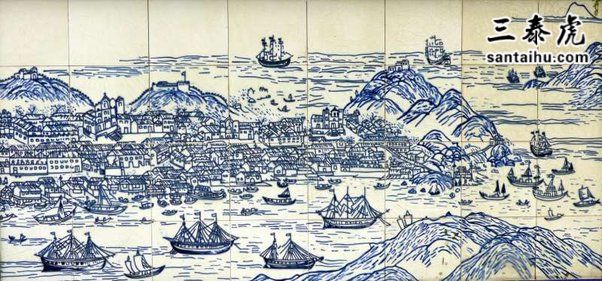
China这个词的词源是什么?
“中国”一词源于马来语“Cina”。“Mandarin”这个词也是如此,它起源于马来语“Menteri”。这两个词在那里都不太常用。16世纪,葡萄牙探险家是最早到达中国的欧洲人之一。
Their agents, guides and pilots were of Malay origin. At that time the Portuguese were simultaneously colonizing Malacca on the Malay peninsula. The Malays were useful guides to the Portuguese as they have been trading with mainland China since 300 BCE. See extract from Asiatic Journal 1827:
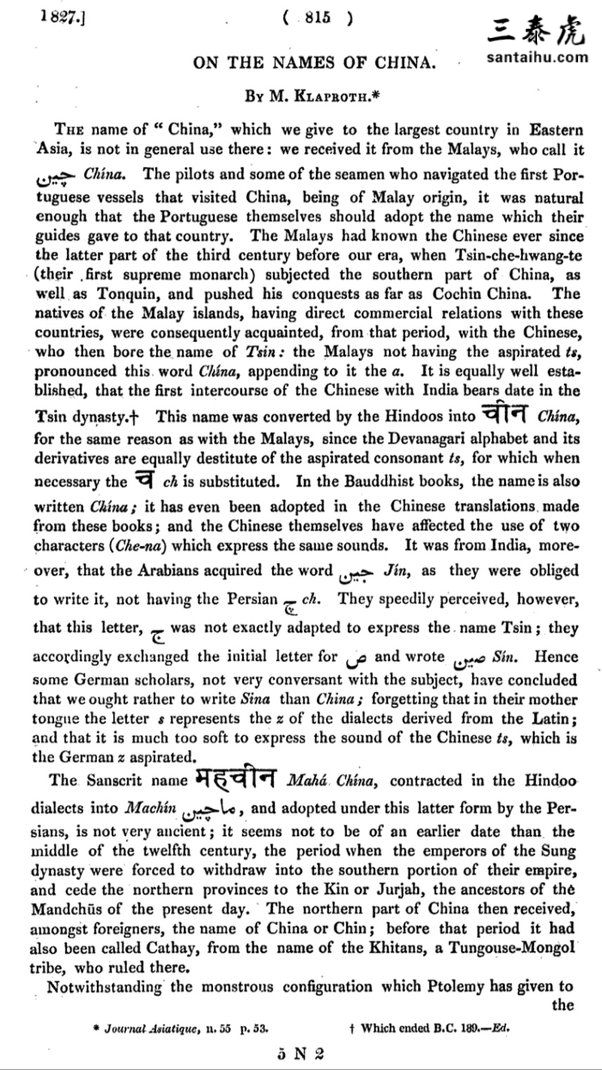
他们的代理、向导和领航员都是马来人。当时葡萄牙人同时统治着马来半岛的马六甲。马来人是葡萄牙人有用的向导,因为他们从公元前300年就开始与中国大陆进行贸易了。见《亚洲杂志》1827年的节选:
(Source Credit: Bert Tan of Malaysian Heritage & History Club)
资料来源:马来西亚遗产与历史俱乐部
The Portuguese just followed what their Malay guides told them. They call the country Cina / China, and called the Ming officials they met "mandarim", which comes from 'menteri' in Malay and, before that, 'mantrī' in Sanskrit, both of which mean “minister” or “counselor.”
葡萄牙人跟着马来向导称这个国家为Cina /中国,并称他们遇到的明朝官员为“mandarim”,这个词来自马来语中的“menteri”,早前源于梵语中的“mantrī”,这两个词的意思都是“大臣”或“谋士”。
Patrick Koh
WHY “China”?
I once couldn’t sleep as a kid, when I learnt that being China is linked to cold ‘ceramics’.
A stupid “Amazing - Do You Know!” book telling me ‘HOW the China nation got its name’.
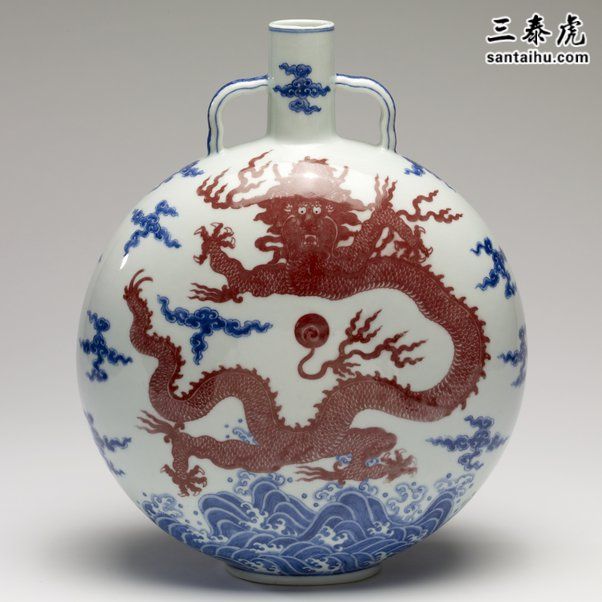
为什么会用“中国”这个词呢?
小时候,我第一次知道中国与冰冷的“陶瓷”有关,一度睡不着觉。
一本很傻的《太棒了—你知道吗》这本书告诉我:‘中华民族是如何得名的’。
I hated that instead of a majestic Dragon or a fearsome Tiger, a civilisation could take its inspiration from a piece of porcelain. LOL.
Perhaps a short Quora reply will help exorcise a childhood nightmare.
HERE!! BELOW has more to do with ‘China’ than the ceramic crockery fake story.
一个文明居然放着巨龙或猛虎不选,偏要从瓷器上找灵感,真是让我生气。哈哈
也许一个简短的Quora回答可以帮我驱除童年的噩梦。
以下内容与“中国”有关,而不是陶瓷陶器这种假故事。
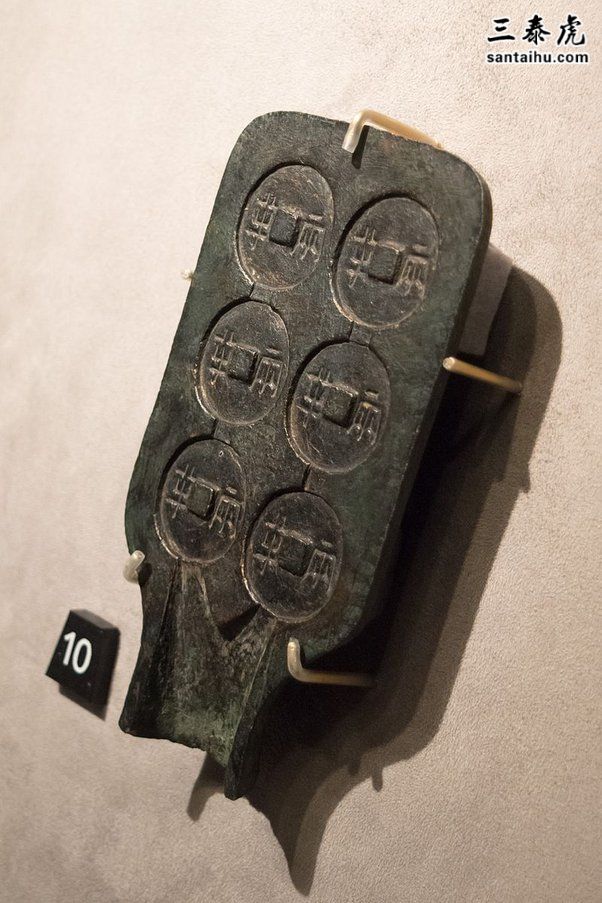
This Bronze mold for minting banliang coins, Warring States period (475-221 BC), State of Qin. 5th century BC!!
And I will tell you why this is the key reason why China is called ‘China’!
铸造半两币的铜模,战国时期(公元前475-221年),秦国。这可是公元前5世纪
我还要告诉你们,为什么这正是中国被称为“中国”的关键原因!
The BIG picture below is the answer, at least the answer I most believe in. But it is the STATE of QIN, and not the QIN Dynasty that gave her its name around the 5th century!
下面的大图就是答案,至少是最我信服的答案。但这是秦国,不是在5世纪左右给它起名字的秦朝!
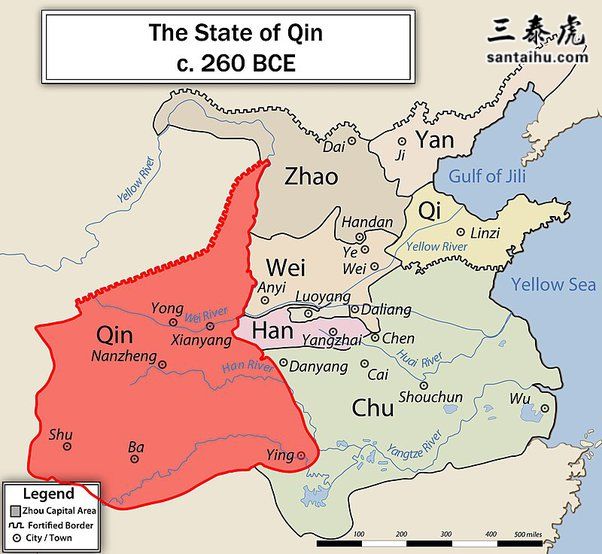
But first why? Because there are a few possibilities.
Where does the name ‘China’ comes from?
Qin dynasty - Lu Lu/What is the origin of the name "China?
Ceramic - from a city “ing de” Boyuan Guan/Origin of the name "China"
Ancient kingdom Zina in Guizhou, China 夜郎 (Yèláng).
Khitan Empire - who was the westermost and most powerful facing the West - Cathay - Wikipedia;
但先来说说为什么?因为有几种可能性。
“中国”这个名字是怎么来的?
秦朝—“中国”这个名字的由来是什么?
陶瓷—源自一座城市“景德”博远关,“中国”这个名字的由来
中国贵州古国夜郎(Yèláng)。
契丹帝国—谁是最西边最强大的国家-中国-维基百科;
Many answers in Quora and most would agree with the first answer (Qin).
Now here is what I think is the most important.
Where do we find the Earliest Exonym ‘China’?
Has to be Sanskrit of course.
Quora上有很多答案,大多数人都认同第一个答案(秦)。
现在来说说我认为最重要的一点。
最早的外来词“china”是在哪里找到的?
当然肯定是梵语。
TIME is very important which is seldom mentioned by many answers. I have great respect for Sanskrit being so OLD influenced most languages in one of my favorite country - India. Now why is this important?
时间是如此重要,这么多答案中却很少有人提到这一点。我非常尊重梵语,因为它非常古老,影响了我最喜欢的国家之一——印度的大多数语言。为什么这很重要呢?
Because to the west of the Qin state (started 897 BC), we have the India subcontinent. Guess what? Around 5th century BC. Qin indeed getting powerful, was minting coins. (By 221 BC Qin unified the Middle Kingdom).
AND those Qin coins corresponded nicely with the mention in Hindu scriptures of Mahābhārata (5th century BC).
因为在秦国的西边(始于公元前897年)有印度次大陆。大约公元前5世纪,秦国的实力逐步壮大,开始铸造钱币。(公元前221年秦国统一了中央王国)。
而且这些秦朝钱币与印度教经文中提到的mahā bha ārata(公元前5世纪)非常吻合。
So the key evidence:
Hindu script of 5th century BC citing Cina.
The rise of Qin state and the minting of coins around then, and the Westernmost location of Qin facing west and India would be to most conclusive to me.
关键的证据来了:
公元前5世纪引用中国的印度文字。
秦国的崛起和当时的硬币铸造,以及秦国最西端的位置朝向西方和印度,对我来说是最有说服力的。
From Sanskrit, we know that this influenced all Indian languages to use Cina in various forms. Likewise the Persians as Cin (چین), followed by all of Middle East, then the Greeks and the Romans (Latin, Sinae). And later the Italians, Portuguese. Now, South East Asians affected by Indianisation, including the Malays, likewise used ‘Cina’ too when the Portuguese first came for spices.
通过梵语,我们知道所有印度语言开始以各种形式表示“Cina”。同样地,波斯人开始使用Cin,接着是整个中东,然后是希腊人和罗马人(拉丁语Sinae)。再后来是意大利人和葡萄牙人。现在,受印度化影响的东南亚人,包括马来人,在葡萄牙人第一次来买香料时,也开始使用“Cina”来指代中国。
Christian Kober
Related
Why is China called China?
The funniest answer I read is that China is named after the porcelaine…. actually it is the other way around.
China is derived from the Qin Dynasty. This was transformed into ‘Cin’ by the Persians and into ‘China’ by Marco Polo and his contemporaries.
为什么中国叫China呢?
我读到的最有趣的答案是中国是因为瓷器得名的....实际上恰恰相反。
中国这个说法起源于秦朝。波斯人把它写成了“Cin”,马可波罗和同时代人又把它写成了“China”。
Asafa Khan
Related
What is the etymology of the word China?
The word "China" is derived from the Persian word Chin (چین), which in turn derives from the Sanskrit word Cīna.
The traditional theory, proposed in the 17th century by Martino Martini, is that Cīna is derived from "Qin" (秦), the westernmost of the Chinese kingdoms during the Zhou Dynasty.
China这个词源于什么呢?
“中国”一词来源于波斯语Chin,而Chin又来源于梵语Cīna。
传统的观点是马蒂诺·马丁尼在17世纪提出的,认为Cīna源于“秦”,是中国周朝时期最西端的一个王国。
The common Chinese names for the country are Zhōngguó (Chinese: 中国, from zhōng, "central" or "middle", and guó, "state" or "states," and in modern times, "nation") and Zhōnghuá (Chinese: 中华), although the country's official name has been changed numerous times by successive dynasties and modern governments.
The term Zhōngguó appeared in various ancient texts, such as the Classic of History of the 6th century BCE.
中国的常用中文名称是Zhōngguó(中文:中国,中,表示“中央”或“中间”,国表示“国家”)和Zhōnghuá(中文:中华),尽管这个国家的官方名称被历代王朝和现代政府更改过无数次了。
Zhōngguó这个词出现在很多古代文献中,比如公元前6世纪的《历史经典》。
 (VIP)美国一直在帮助印度崛起“以
(VIP)美国一直在帮助印度崛起“以 (VIP)印媒:斡旋沙特和伊朗后,又斡旋
(VIP)印媒:斡旋沙特和伊朗后,又斡旋 (VIP)印媒:针对中国,美英澳三国公布2
(VIP)印媒:针对中国,美英澳三国公布2 (VIP)印媒:中国发誓要把军队打造成
(VIP)印媒:中国发誓要把军队打造成 美版知乎:中国的基础设施建设排名全
美版知乎:中国的基础设施建设排名全 (VIP)走进中国西藏日喀则的达曼村,
(VIP)走进中国西藏日喀则的达曼村, (VIP)印媒:中国任命李尚福出任国防
(VIP)印媒:中国任命李尚福出任国防 (VIP)中国在中东和北非的推进,使得
(VIP)中国在中东和北非的推进,使得